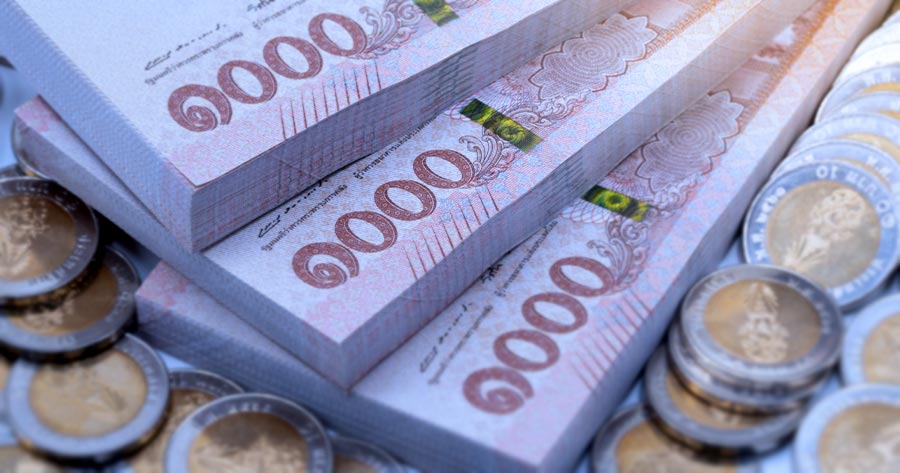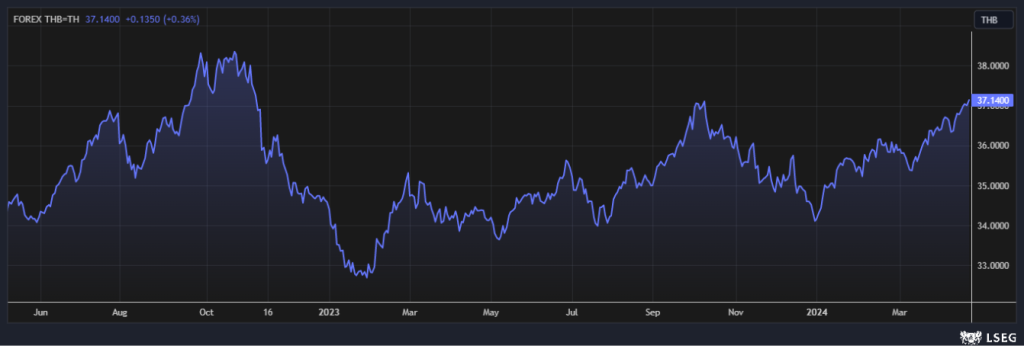Thai baht fell to its weakest level since November 2022 as flows continue to seek safer currency amid uncertainty in the Middle East and Russia-Ukraine.
The baht continued to weaken despite the report yesterday that the Bank of Thailand had intervened in the currency market.
According to Reuters, Bank of Thailand (BOT) officials revealed on Wednesday that it has engaged in interventions in the currency markets as necessary to mitigate excessive fluctuations in the baht, while the existing robust policy rate is supportive of the ongoing economic recovery efforts.
Assistant governor Piti Disyatat indicated that, despite heightened volatility, the baht’s movements are consistent with those of regional currencies. His statements follow the baht’s recent dip to over a six-month low beyond 37 baht to the dollar.
The BOT does not have specific exchange rate targets for the baht but assured that the current interest rates are resilient and capable of managing potential economic risks.
The central bank expressed readiness to make adjustments to the policy rate if deemed essential, while also highlighting that substantial rate reductions are presently deemed inappropriate and unlikely to facilitate financial accessibility for small enterprises.
Meanwhile, the US dollar broke through JPY155, but there does not seem to be an intervention by the authorities.






